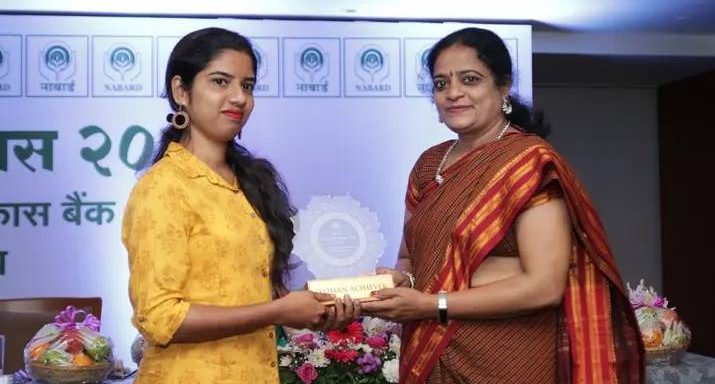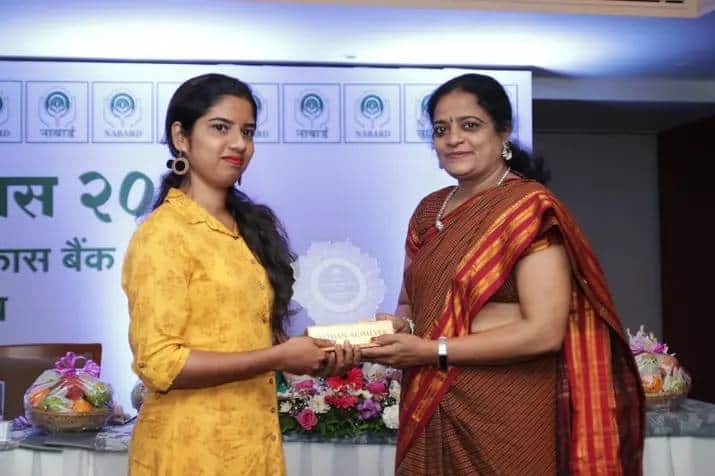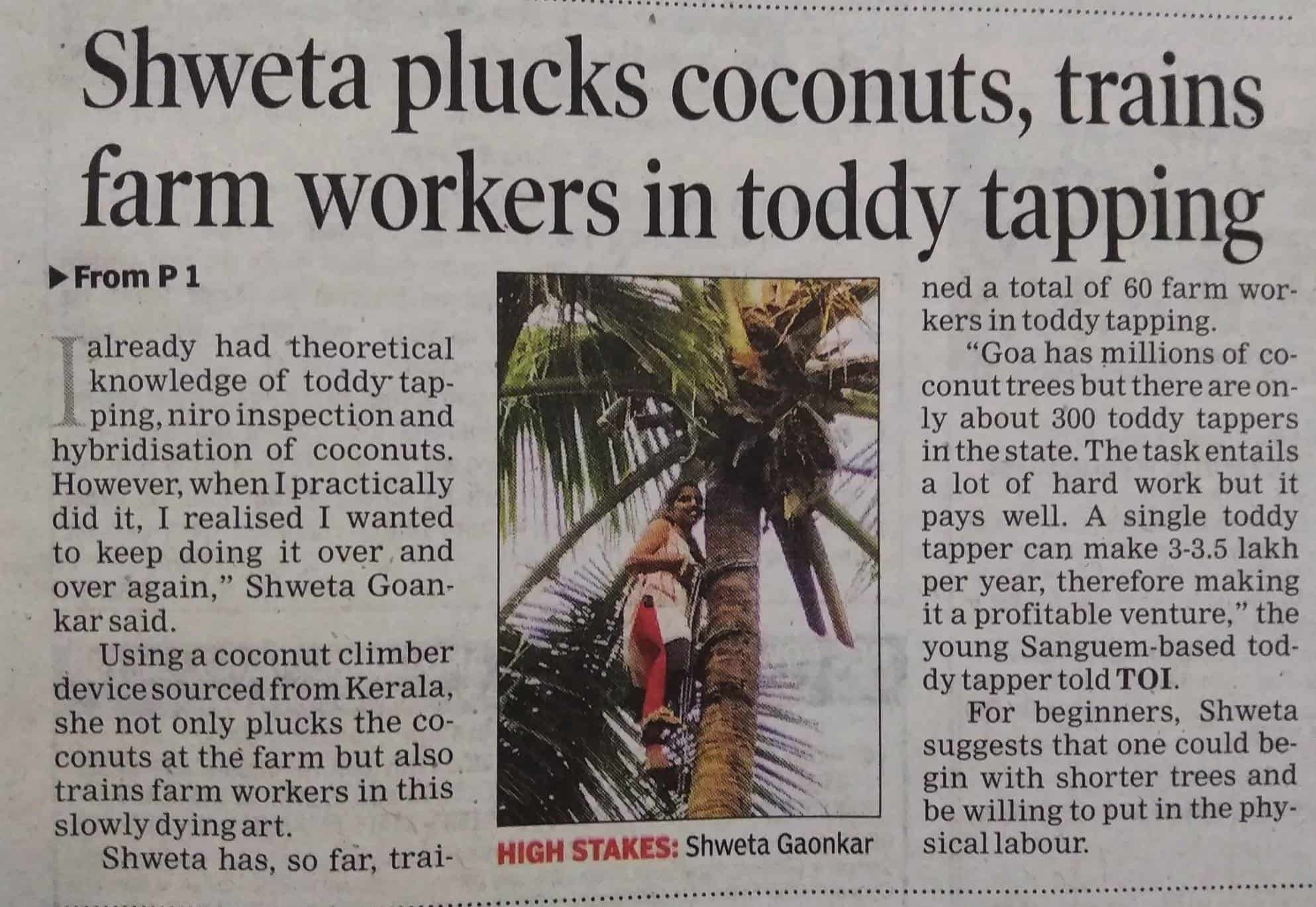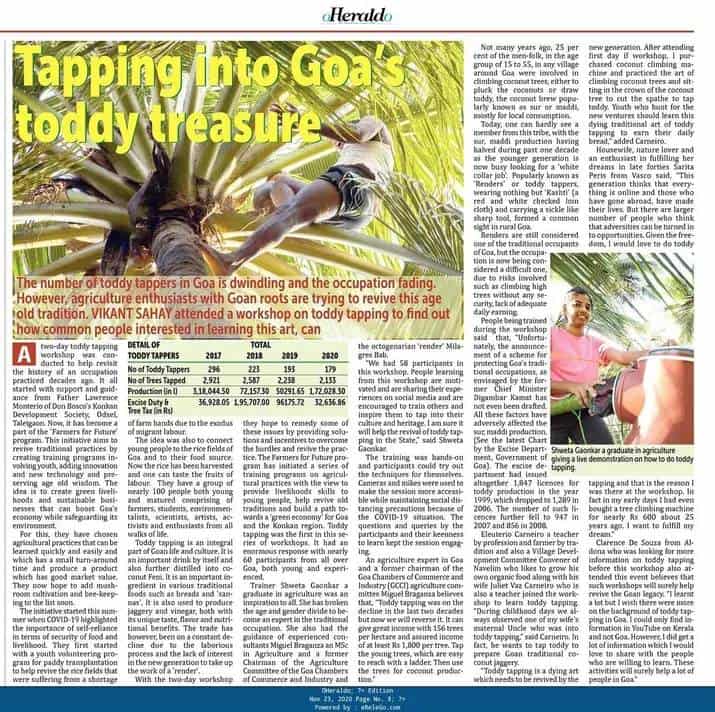(Don Bosco College of Agriculture, Sulcorna) – Shweta Gaonkar, 24, was trying to crack her engineering exam but there was a faint voice in her head that urged her to walk on the road less traveled – a BA in agriculture. Currently working as a farm manager at a private farm, she is making waves as perhaps the only woman toddy tapper in Goa.
“Though there are many women coconut tree climbers, there no women toddy tappers that we know of in Goa, other than Gaonkaer”
– Miguel Braganca, a member of the Goa Botanical society.
After her graduation from the Don Bosco College of Agriculture, she took up tissue culture research at Bengaluru, wherein she was studying how to multiply millions of coconut seedlings from a single seed. However, the pandemic-induced lockdown compelled her to leave her research behind and return to Goa and take up a job there.
One day, while making the farm. she started climbing a coconut tree and figured that shes not afraid to go higher.
” I already had theoretical knowledge of toddy tapping, Niro inspection, and hybridization of coconuts, but when I practically did it, I realized I wanted to keep doing it over and over again,” she said.
Using a coconut climber device sourced from Kerala, she not only plucks the coconuts at the farm but also trains farm workers in this slowly dying art. She has, so far, trained a total of 60 farm workers in toddy tapping.
“Goa has millions of coconut trees but only about 300 toddy tappers in the state. It entails a lot of hard work but pays well. A single toddy tapper can make 3-3.5 lakh per year, therefore making it a profitable venture” she told TOI.
For beginners, she suggests that one could begin with shorter trees and be willing to put up the physical labor.
Source: Times of India




